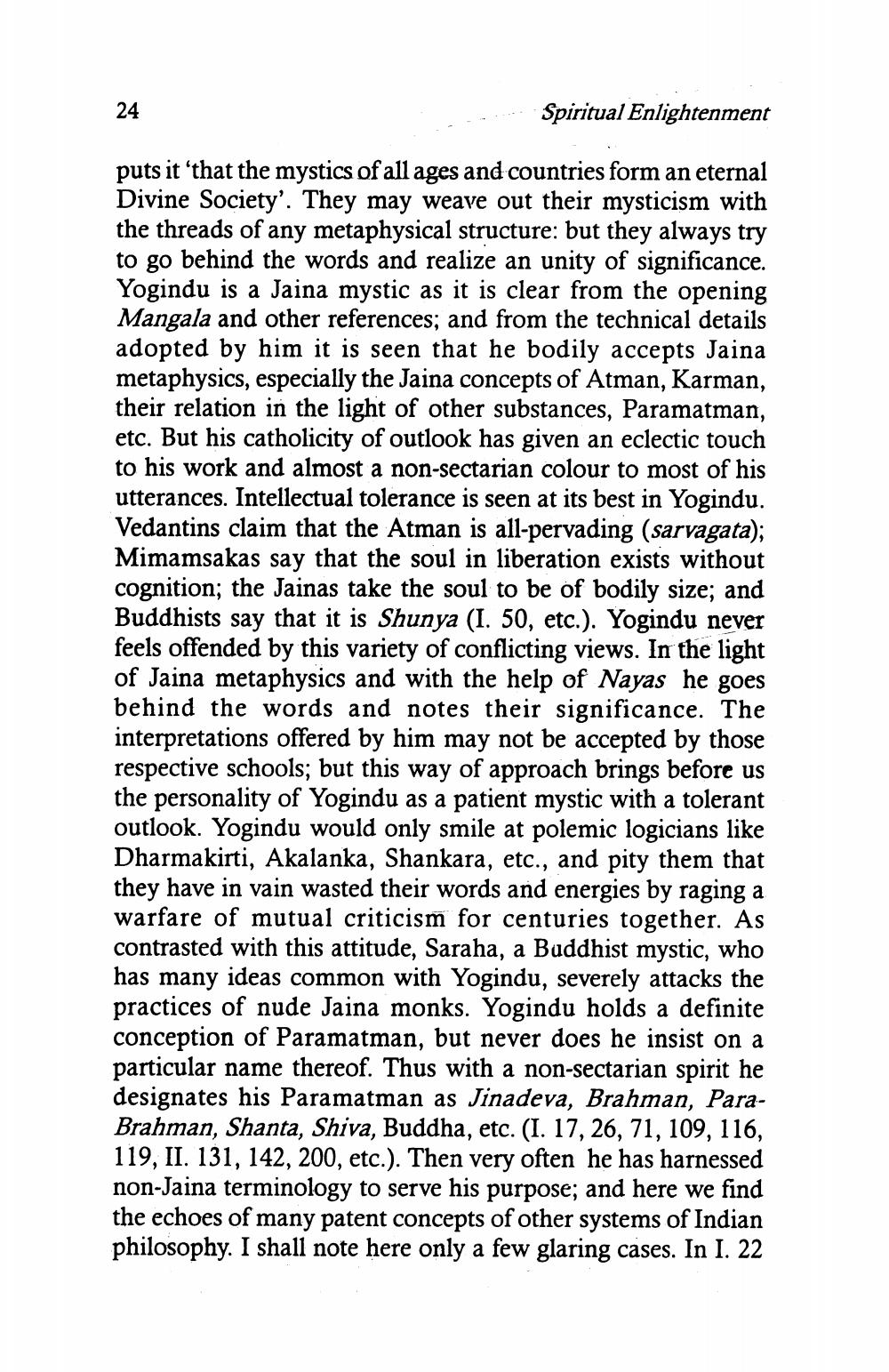________________
Spiritual Enlightenment
puts it 'that the mystics of all ages and countries form an eternal Divine Society'. They may weave out their mysticism with the threads of any metaphysical structure: but they always try to go behind the words and realize an unity of significance. Yogindu is a Jaina mystic as it is clear from the opening Mangala and other references; and from the technical details adopted by him it is seen that he bodily accepts Jaina metaphysics, especially the Jaina concepts of Atman, Karman, their relation in the light of other substances, Paramatman, etc. But his catholicity of outlook has given an eclectic touch to his work and almost a non-sectarian colour to most of his utterances. Intellectual tolerance is seen at its best in Yogindu. Vedantins claim that the Atman is all-pervading (sarvagata); Mimamsakas say that the soul in liberation exists without cognition; the Jainas take the soul to be of bodily size; and Buddhists say that it is Shunya (I. 50, etc.). Yogindu never feels offended by this variety of conflicting views. In the light of Jaina metaphysics and with the help of Nayas he goes behind the words and notes their significance. The interpretations offered by him may not be accepted by those respective schools; but this way of approach brings before us the personality of Yogindu as a patient mystic with a tolerant outlook. Yogindu would only smile at polemic logicians like Dharmakirti, Akalanka, Shankara, etc., and pity them that they have in vain wasted their words and energies by raging a warfare of mutual criticism for centuries together. As contrasted with this attitude, Saraha, a Buddhist mystic, who has many ideas common with Yogindu, severely attacks the practices of nude Jaina monks. Yogindu holds a definite conception of Paramatman, but never does he insist on a particular name thereof. Thus with a non-sectarian spirit he designates his Paramatman as Jinadeva, Brahman, ParaBrahman, Shanta, Shiva, Buddha, etc. (I. 17, 26, 71, 109, 116, 119, II. 131, 142, 200, etc.). Then very often he has harnessed non-Jaina terminology to serve his purpose; and here we find the echoes of many patent concepts of other systems of Indian philosophy. I shall note here only a few glaring cases. In I. 22
24




